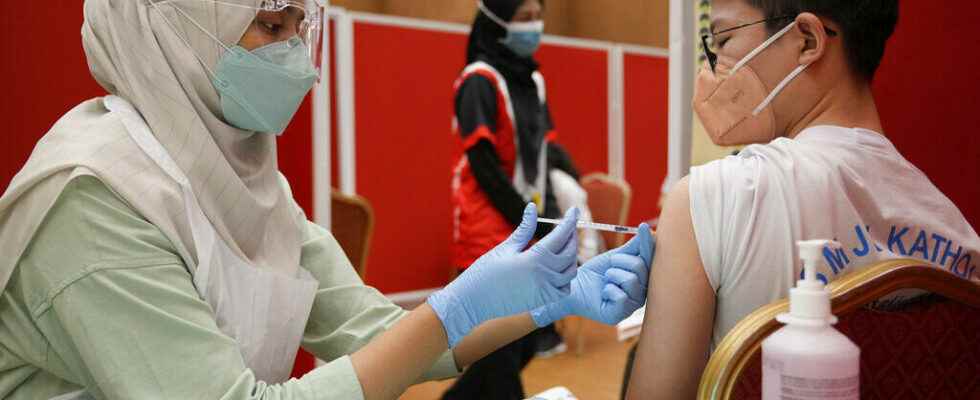If 98.8% of adults in the country have received at least one dose, Malaysians are becoming wary when it comes to vaccinating their children: today, only 38% of them are vaccinated.
With our correspondent in Kuala Lumpur, Gabrielle Marshals
Malaysian officials have been trying to reassure themselves for months: Deputy Health Minister Noor Azmi Ghazali assures us that the Pfizer Bio and Tech vaccine is effective and safe for children. His superior, Minister Khairy Jamaluddin, promises for his part that the vaccine will never be compulsory for minors.
” Children will not be subject to any restrictions, depriving unvaccinated children of certain freedoms could force some families to have their children vaccinated, and this could be perceived as coercive. So there will be no vaccination requirements for anything concerning children, like we did for adults. “, he had declared.
A promise kept two months later, no obligation to vaccinate children has arisen and, in the middle of the month of Ramadan, the authorities limit themselves to ” advise against » parents to take their children to the traditional bazaars of this Muslim month, which are often very crowded.
But despite all these efforts, success is not at the rendezvous. Malaysia may have to throw away up to 3 million doses, reveals Alifah Zainuddin in a report published by the Galen Center, a think tank specializing in public health.
“ Malaysia has ordered 6.6 million doses of the vaccine for children. But the number of vaccines (administered) is already declining. So if this trend doesn’t change drastically, if nobody uses these specially designed doses for children, we can expect that millions of doses will be wasted, because they are to be used for children only and they have an expiry date “, she explains.
Stocks that are difficult to dispose of
In the past, Malaysia had already sent some of its unused stocks to countries such as Bangladesh, Laos, and soon also Afghanistan. But with these vaccines aimed at children, replicating these shipments could be more complicated.
” Many other countries have the same problem as here: if there is an overall surplus of vaccines for children, it can be difficult to send our stock abroad “, continues Alifah Zainuddin.
However, the coronavirus is far from harmless for children, according to a meta-analysis of 80,000 cases, a quarter of them develop forms of long covid.
►Read also: In Malaysia, the Covid-19 dangerously drains retirement savings
